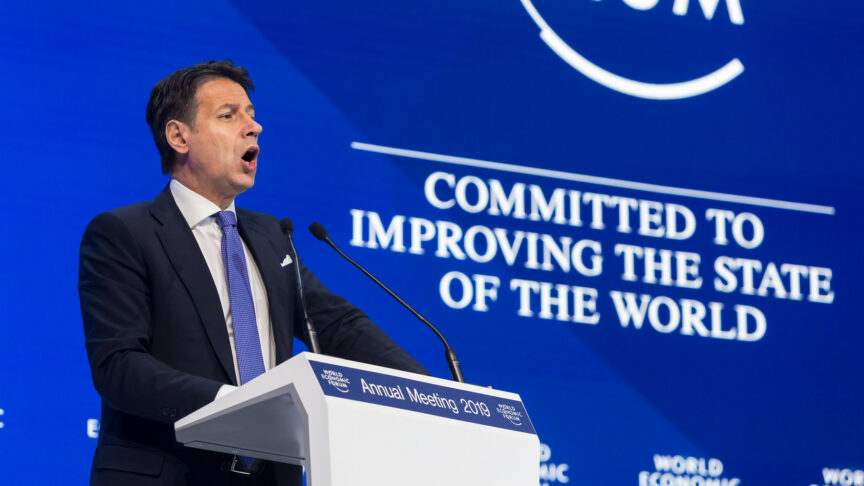Out of the south: Why Italy and Portugal should lead on climate change, health security, and multilateralism
Italy and Portugal will follow a common, coordinated strategy on key policy areas as presidents of the G20 and the EU respectively
By 1 January 2021, two southern European countries will have high-profile roles in international politics. Portugal will have taken up the presidency of the EU, following Italy’s assumption of the G20 presidency a month earlier. Both presidencies will run through the second (and perhaps third) wave of the covid-19 pandemic – an extraordinary time for Italian, Portuguese, and global politics.
The two presidencies will seek to implement a common, coordinated strategy on climate change and environmental issues more broadly, including the European Green Deal. And Italy will co-chair the United Nations Climate Change Conference (COP26) alongside the United Kingdom, holding a round of preparatory meetings such as ‘Youth4Climate: Driving Ambition’ and the pre-COP26 summit. The goal of these efforts is to revamp the Paris Agreement on climate change and help fulfil its political ambitions – tasks that will likely become easier after the United States rejoins the deal under the incoming Biden administration.
Italy will play a coordinating role in this at three different levels: the multilateral one as president of the G20, particularly through dialogue with global actors that prioritise climate change; the European one, by fitting its objectives into the broader goals set by the European Commission; and the national one, by framing the covid-19 recovery plan around the ambitious attempt to ‘green’ the economy. Of course, the green dossier existed before the pandemic – and covid-19 has presented Italy with many daunting challenges. But, at the same time, the crisis has accelerated several vital political processes and cast new light on opportunities for international cooperation in strategically important policy areas, not least climate change.
Thanks to the Next Generation EU recovery plan, Italy has been able to lay out a €196 billion national recovery plan – €123 billion of which will go towards green initiatives and the digital transition, boosting GDP growth by an estimated 2.5 per cent per year during 2021-2023. One of the biggest challenges for Italy will be in ensuring that climate action remains linked to the other five recovery priorities: healthcare; social, gender, and territorial equality; digitalisation, innovation, and competitiveness; infrastructure for mobility; and education, training, research, and culture.
Meanwhile, Portugal has already made clear that, as president of the EU, it will place the climate emergency at the top of the agenda. And the country has indicated that this will align with the European Union’s ambitious long-term objectives for the recovery.
The two presidencies are likely to have a shared commitment to addressing social issues. The social welfare of EU citizens will be at the core of Portugal’s European agenda. If the German EU presidency laid the foundation of the EU’s recovery plan, the Portuguese one will have the politically delicate task of coordinating member states’ implementation of their national recovery plans. Portugal will need to punch above its weight to ensure that European citizens benefit from Next Generation EU economically, socially, and politically.
Italy will need to do more to shape European politics and create efficient partnerships.
Similarly, Italy has stated ‘people’ will be one of the three pillars of its G20 strategy – alongside ‘planet’ and ‘prosperity’. Again, this fits perfectly with the EU recovery framework laid out by European Commission President Ursula Von der Leyen. Hopefully, the EU’s global health summit scheduled to take place in Italy in May 2021 will align member states’ efforts to manage health issues with those at the European and global levels.
Given all these considerations, 2021 will be a challenging year for Italy politically. The country has experienced more cases of covid-19 than all but seven other nations in the world; is projected to have one of the lowest growth rates, and one of the highest unemployment rates, in the EU in 2021; and will have to address a range of lingering problems linked to the 2008 financial crisis and the 2015 migration crisis. At the same time, 2021 should test Italian ambitions at the EU and global levels. It will be no easy task to host the G20 summit for the first time during the pandemic: global economic activity is set to contract by 4.4 per cent in 2020 – the highest rate since the end of the second world war – according to estimates by the International Monetary Fund.
To achieve its aims, Italy will need to make full use of its position as the fourth-most influential EU member state, as measured by the European Council on Foreign Relations’ EU Coalition Explorer. However, Italy will need to do more to shape European politics and create efficient partnerships – ranking as it does in twelfth place for its responsiveness to other member states, in fifth place among the most disappointing member states, and in second place (after Spain) for the gap between its potential and reality.
It is time to change this. Since the Brexit referendum, there has been much talk of how Italy could take on a more prominent international role and a position itself closer to the Franco-German engine. In its efforts to do so, Italy should use its roles in the G20 and COP26 as unique opportunities to showcase its potential and become a net contributor to the EU and multilateral order.
The European Council on Foreign Relations does not take collective positions. ECFR publications only represent the views of their individual authors.



